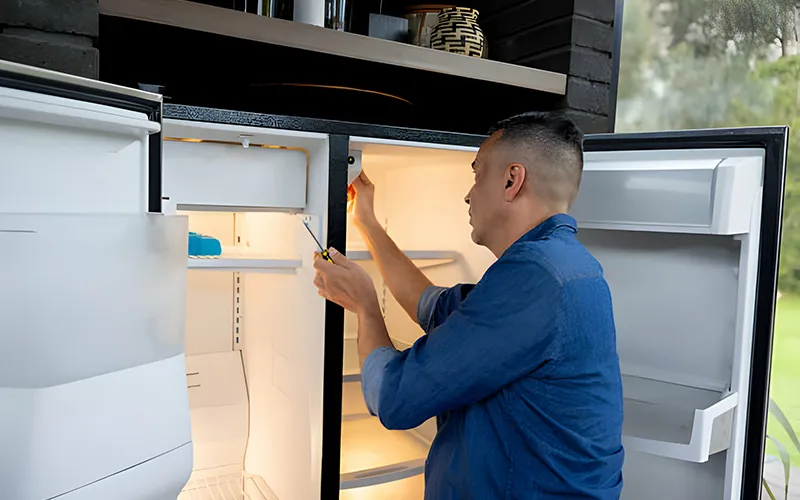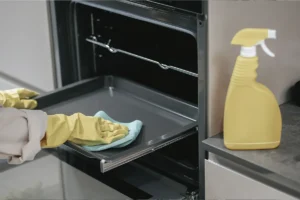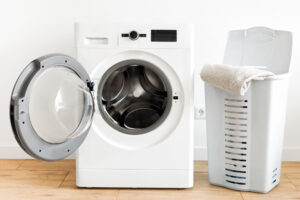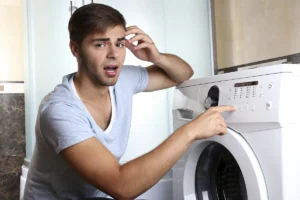Top Reasons Your Refrigerator is Not Cooling Properly and How to Tackle Them
Imagine coming home after a long day, ready to grab a cold beverage from your refrigerator, only to find it isn’t cooling properly. The frustration and inconvenience of a malfunctioning fridge are experiences many can relate to. At Travis County Appliance Repair, we understand the importance of a well-functioning refrigerator, and we are here to guide you through the top reasons why your fridge not cooling as it should, along with effective solutions to tackle these problems.
Common Signs of Refrigerator Cooling Issues
One of the first indicators of cooling problems is a noticeable rise in temperature inside the refrigerator. Your once crisp veggies might turn limp, and the milk could be warmer than you’d like. Spoiled food is another red flag, along with unusual noises emanating from the appliance and the dreaded ice buildup in the freezer.
Reasons Your Fridge Not Cooling
The first step in diagnosing a non-cooling refrigerator is to ensure it’s receiving an adequate power supply. Check the power cord, outlet, and circuit breaker to rule out any electrical issues.
If it’s not that simple you can find solutions from our compressive guide:
Dirty Condenser Coils
Condenser coils are an integral part of your refrigerator’s cooling system. These coils are responsible for releasing heat from inside the fridge, allowing it to maintain the desired temperature. Over time, however, these coils can become clogged with dust, dirt, and pet hair. This accumulation hampers their ability to dissipate heat efficiently, causing your refrigerator to struggle with cooling.
Solution: To address this issue, follow these steps:
- Unplug your refrigerator from the power source to ensure safety.
- Locate the condenser coils, which are typically found either on the back of the appliance or underneath it.
- Carefully use a vacuum cleaner or a brush to remove the accumulated debris.
- Ensure that the coils are clean and free from obstructions.
Regularly cleaning your condenser coils can significantly improve your fridge’s cooling performance, ensuring that it runs efficiently and effectively.

Blocked Air Vents
Proper air circulation is vital for maintaining the optimal temperature inside your refrigerator. Blocked air vents can disrupt this circulation, leading to issues such as uneven cooling or inadequate cooling throughout the fridge.
Solution: To address this problem, follow these steps:
- Open your refrigerator and freezer compartments and inspect the vents inside.
- Ensure that there are no food containers or items obstructing the vents.
- If you find any ice buildup in the vents, gently remove it.
- Rearrange the items inside your fridge to allow for proper airflow and circulation.
By keeping the vents unobstructed and ensuring efficient airflow, you can prevent cooling problems and maintain a consistently cool refrigerator.
Faulty Thermostat
Your refrigerator’s thermostat is responsible for regulating the temperature inside the appliance. When it malfunctions or loses accuracy, it can lead to temperature inconsistencies, resulting in your fridge not cooling as it should. Inaccurate temperature readings may cause the compressor to work harder or not cool the refrigerator properly.
Solution: If you suspect a faulty thermostat, it’s essential to seek professional assistance.
- Contact a reputable home appliance repair company or technician.
- They will diagnose the issue by testing the thermostat’s functionality.
- If required, they will replace the faulty thermostat with a new one, ensuring precise temperature control.
Addressing thermostat issues promptly is crucial for maintaining the proper cooling of your refrigerator.

Overcrowded Fridge
While it’s tempting to maximize the storage space in your refrigerator, an overcrowded fridge can hinder the flow of cool air. The excess food items can absorb the cold air, making it challenging for the appliance to maintain the desired temperature.
Solution: To prevent this issue, adopt these practices:
- Regularly declutter your refrigerator and freezer compartments.
- Maintain an organized layout that allows for proper air circulation.
- Avoid overpacking your fridge with food items.
By following these guidelines, you can ensure that your refrigerator cools efficiently and effectively, even during periods of high usage.
Refrigerant Leak
A refrigerant leak is a severe issue that can significantly impact your refrigerator’s cooling capabilities. Refrigerant is the substance responsible for cooling the air inside the appliance, and a leak can lead to a gradual loss of cooling power.
Solution: If you suspect a refrigerant leak, do not attempt to fix it yourself due to potential safety hazards. Instead:
- Immediately contact a professional fridge repair service company.
- Trained technicians will assess the situation, locate the leak, and address it appropriately.
- They will recharge the refrigerant if necessary, restoring your refrigerator’s cooling efficiency.
Prompt action is essential when dealing with refrigerant leaks to prevent further damage to your appliance.
Damaged Door Seals
The integrity of your refrigerator’s door seals is critical for maintaining a consistent temperature inside. If the seals are damaged, loose, or compromised in any way, warm air can seep in, causing the fridge to work harder to stay cool.
Solution: To address damaged door seals, follow these steps:
- Inspect the door seals for any visible damage or wear.
- Check for gaps or tears in the seals that may allow warm air to enter.
- If you find issues, replace the damaged seals promptly to ensure a proper seal when the door is closed.
Maintaining tight and effective door seals is essential for optimal cooling and energy efficiency in your refrigerator.
Compressor Problems
The compressor is the heart of your refrigerator’s cooling system. If it fails or encounters issues, your fridge’s cooling capabilities will be severely compromised. Compressor problems can manifest as insufficient cooling or temperature fluctuations.
Solution: When dealing with compressor issues, it’s best to leave the diagnosis and repair to experienced appliance technicians:
- Contact a reputable appliance repair services company to assess the situation.
- Trained professionals will determine whether the compressor needs repair or replacement.
- They will perform the necessary procedures to restore your refrigerator’s cooling efficiency.
Addressing compressor problems promptly is crucial to prevent food spoilage and ensure the longevity of your appliance.
Proactive Refrigerator Maintenance: Extending the Lifespan of Your Appliance
Safeguard your refrigerator from cooling issues with preventive maintenance. Regularly clean condenser coils, check door seals, and avoid overloading to prevent potential problems. Prioritize safety in DIY repairs by unplugging and cleaning coils with a vacuum or brush. If the thermostat is faulty, consider a replacement following the manufacturer’s guidelines. Timely repairs not only prevent food spoilage but also extend your refrigerator’s life, saving you from inconvenience and further damage. Swiftly addressing issues can significantly prolong your appliance’s lifespan. for professional refrigerator repairs and maintenance in and near Austin, TX, choose Travis Appliance Repair. Contact us today for expert service.
Frequently Asked Question
It’s recommended to clean the condenser coils at least twice a year to maintain optimal cooling efficiency.
Unusual sounds could be indicative of a faulty evaporator fan or other internal components. It’s advisable to consult a professional for diagnosis and repair.
Yes, overloading impedes proper airflow. Follow recommended storage guidelines to ensure efficient cooling.
Yes, preventive maintenance helps extend the lifespan of your refrigerator and prevents common cooling issues. Regular cleaning and inspections are key.
Maintain a temperature between 37°F to 40°F for optimal food preservation and energy efficiency.
Water pooling at the bottom of the fridge may be due to a clogged defrost drain, preventing proper drainage. Unclogging the drain can resolve this issue and prevent water accumulation.
amazing things you didn't know about Appliance Repair

Best Oven Cleaning Tips: How to Clean Oil From Oven
Best Oven Cleaning Tips: How to Clean Oil From Oven Join Us on the Journey Toward a Sparkling Oven Getting rid of oil from the oven can be a tough and time-consuming task sometimes, especially

5 Best Washing Machines of 2024 in the USA
5 Best Washing Machines of 2024 in the USA How a Quality Washing Machine Can Be Beneficial? Selecting the best washing machine is crucial because it can offer various benefits, such as Being Cost Effective

Washing Machine Squeaking Fix
Fixing Washing Machine Squeaking: Expert Tips & Tricks Diagnosing the Issue: Annoying Squeaking Sounds Washing machine Squeaking sounds are annoying and can really damage your washing machine sometimes. Squeaking sounds can have different reasons, and

